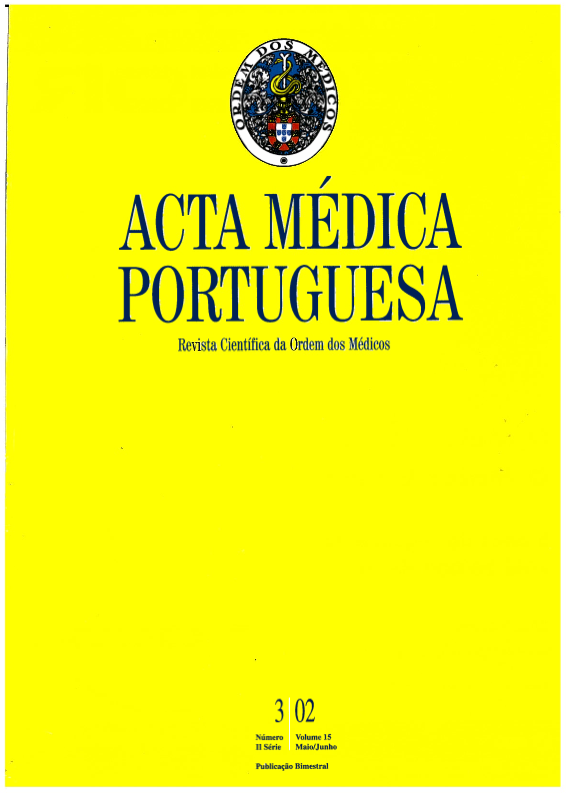Doenças da tireóide na grávida.
DOI:
https://doi.org/10.20344/amp.1925Resumo
The thyroid diseases are more frequent in women, which is probably related to the fact that many thyroid diseases are of the autoimmune type, secondary to the effects of sexual steroids in the immunological system; although it had never been completely cleared up, it seems that estrogens and progestogens may modulate the lymphocyte differentiation as well as the induction of the autoimmune response. After delivery, the thyroid dysfunction of autoimmune type often occurs, even in women without previous history of thyroid disease. Some authors assume that the cytokines, produced by the mother, fetus or placenta, inhibit the autoimmune reaction during pregnancy. The subsequent reduction in the inhibiting cytokines, after delivery, allows the aggravation or the beginning of the autoimmune disease. Although autoimmunity is traditionally considered as a major cause for thyroid disease during pregnancy, recent studies indicate that the most common aetiology of disturbance of thyroid tests during pregnancy is the hyperthyroidism due to the inadequate production of human chorionic gonadotropin (hCG). However, from the clinical point of view, the hyperthyroidism caused by Graves' disease is the most important cause for maternal and fetal morbidity.Downloads
Downloads
Como Citar
Edição
Secção
Licença
Todos os artigos publicados na AMP são de acesso aberto e cumprem os requisitos das agências de financiamento ou instituições académicas. Relativamente à utilização por terceiros a AMP rege-se pelos termos da licença Creative Commons ‘Atribuição – Uso Não-Comercial – (CC-BY-NC)’.
É da responsabilidade do autor obter permissão para reproduzir figuras, tabelas, etc., de outras publicações. Após a aceitação de um artigo, os autores serão convidados a preencher uma “Declaração de Responsabilidade Autoral e Partilha de Direitos de Autor “(http://www.actamedicaportuguesa.com/info/AMP-NormasPublicacao.pdf) e a “Declaração de Potenciais Conflitos de Interesse” (http://www.icmje.org/conflicts-of-interest) do ICMJE. Será enviado um e-mail ao autor correspondente, confirmando a receção do manuscrito.
Após a publicação, os autores ficam autorizados a disponibilizar os seus artigos em repositórios das suas instituições de origem, desde que mencionem sempre onde foram publicados e de acordo com a licença Creative Commons









